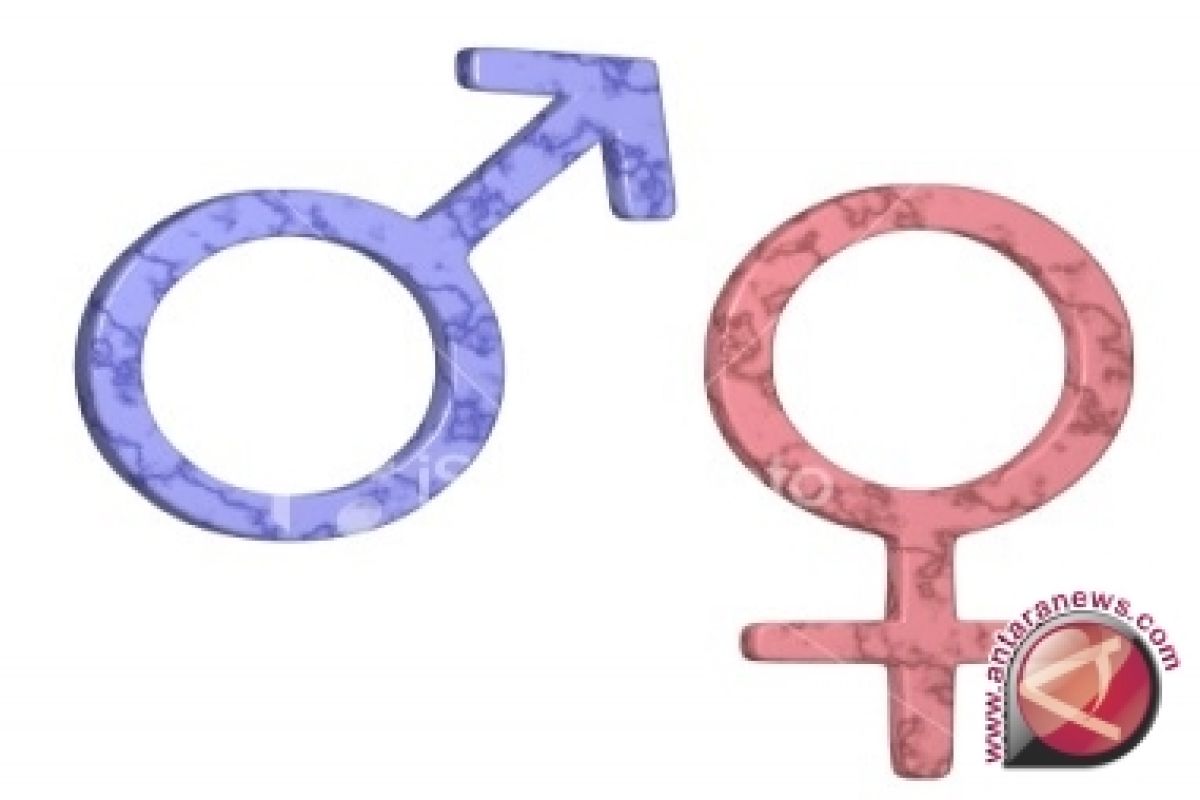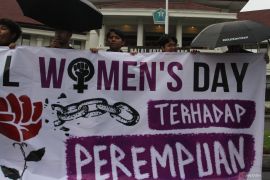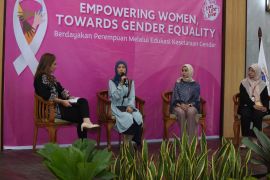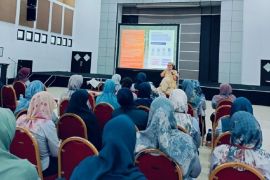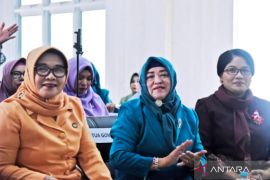Jakarta (Antara Babel) - The latest report launched by the United Nations Development Program (UNDP) has indicated that Indonesia has made significant progress on the human development index (HDI), having elevated its position rapidly in the past 25 years.
Country Director of UNDP Indonesia Christophe Bahuet said the country ranked 133 among 188 countries and was the best performer with regard to HDI in the Asia Pacific.
The increase in Indonesia's HDI, with 0.712 for men and 0.66 for women, is driven by some factors, such as a 135.4 percent rise in the per capita income, increase in life expectancy by five to eight years, and an average increase of up to 4.6 years in the period spent on education.
Although the HDI has improved, the UNDP does not view it as a significant achievement, as the actual situation in the society is much more complex.
In Indonesia, 140 million people earn less than Rp20 thousand per day, and 19.4 million others suffer from malnutrition.
Meanwhile, two million children under the age of one year have not received full immunization, and the maternal mortality rate is 305 deaths per 100 thousand live births.
"Another shortcoming is also apparent from the lack of access to basic services, with nearly five million children not able to attend school. Papua has the highest school dropout rate of children," Bahuet revealed.
Every country, including Indonesia, has some sections of society that are lagging due to multidimensional issues, such as gender inequality and the lack of women's empowerment.
Gender gap between men and women emerge owing to multiple reasons, which are basically linked to social norms, lack of education or difference in education, and lack of access to services.
In most countries, the main cause of gender inequality is the combination of social and cultural factors.
According to UNDP Indonesia's advisor on Sustainable Development Goals (SDGs) Ansye Sopacua, neglecting women will result in several risks that can lower the HDI index, such as low enrollment in schools, inadequate access to healthcare services, and low work participation.
With a gender development index (GDI) of 0.9, only 42.9 percent Indonesian women gain education until senior high school, while among men it is 51.7 percent.
Women's labor participation rate of 50.9 percent is too far adrift, when compared with the 83.9 percent among men.
"If gender equality is achieved, the GDI will indicate 1. Gender gap is not only prevalent in developing countries, but also in countries such as China whose economy is growing rapidly," Sopacua explained.
As a Muslim majority country, Indonesian women have the liberty to play an active role in the economy, politics, and social lives. Such achievement must also be shared with other countries in and beyond the region, including Middle East countries whose economic and political structures are still men-dominated.
According to Christophe Bahuet, a prominent example of gender equality in Indonesia is the success of women in businesses.
As CEOs of companies, several Indonesian women have shown that women can contribute to the economic development of the country.
The government has also been implementing policies to facilitate better access to credit for women under the program of financial inclusion carried out by the Financial Services Authority (OJK), in cooperation with the UNDP.
Such policies have room for improvement in terms of building capacity for women to take an active part in the society, despite their domestic roles.
However, gender equality must not only be cultivated by women. UNDP sees the need to sensitize Indonesian women about the status of women, as well as the importance of gender equality which includes principles of no violence, women having the same opportunities for jobs, as well as the same salary and promotion as men.
The representation of women in politics needs to be higher in terms of women not only being in parliament, but also being in leadership positions, including in commissions and high-level senior positions.
A change in perception is required to let everyone, including women, gain benefit from the human development.
"If gender equity is achieved, then it is basically the human development of the whole nation, of every family, which goes up. This is the message, and we need a lot of action to reach the objectives," Bahuet noted.
To ensure that human development has a positive impact on all Indonesians, the UNDP has proposed four strategies to be implemented at the national and regional levels, such as special policies for the disadvantaged groups and specific measures for groups with particular needs, in this case, women.
Furthermore, it is necessary to ensure resilience to realize human development and to empower the disadvantaged groups.
"Actually, several of these strategies are already reflected in Nawacita through public policies prepared by the Indonesian government. However, the implementation of these policies, both at the central and regional levels, must be improved constantly," UNDP advisor Sopacua added.
The report of Indonesia's 2016 HDI advocates inclusion to bring sustainable development and human development to all, both in the national and local context.
"Empowering people and the communities in an inclusive way is the best way to bring together the culture and the objective of development. That is what the report is saying to us," she said.


